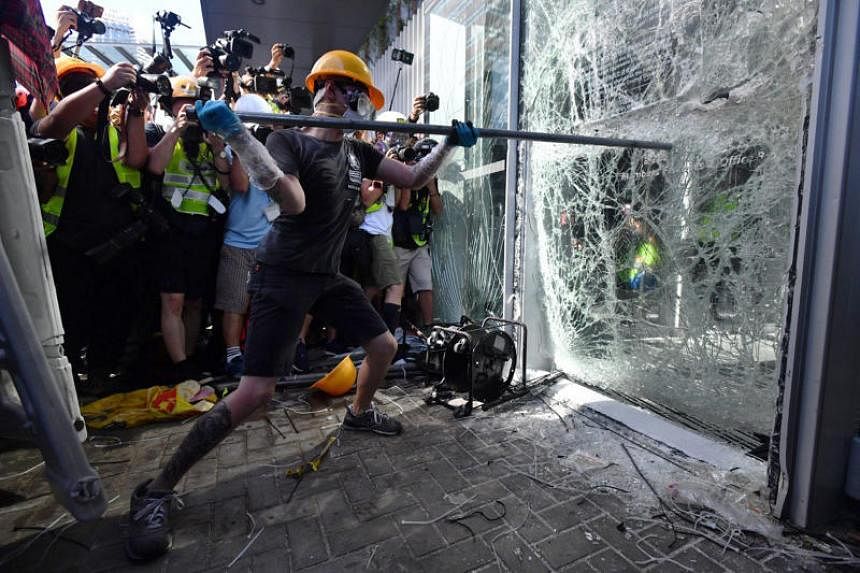Hong Kong chief executive Carrie Lam completes her five-year term on June 30, putting an end to her 42-year career in government service. Here is a look at the key events which marred her tenure.
March 2019
Thousands of protesters, including lawmakers and prominent pro-democracy advocates, took to the streets from March that year. They were against amendments to the law that allow extradition to places Hong Kong did not have treaties with, such as the mainland and Taiwan.
Critics argued that this could endanger dissidents as the amendments would apply retroactively to people accused of offences, who would face trial in what the critics said was an opaque system in the mainland.
But the Hong Kong government said the Bill was to ensure the city does not become a haven for suspected criminals and that it would safeguard human rights.
After a massive protest on June 12 turned violent as some protesters clashed with the police, Hong Kong Chief Executive Carrie Lam suspended the plan indefinitely, but it was deemed too little and too late. The deep-seated anger triggered a series of clashes between protesters and police officers.
November 2019

Following months of street protests, the opposition camp won a landslide victory in the district council election, where most seats are directly picked by the people.
The election, usually a muted affair, saw a spike in the number of young voters and was viewed as a referendum on Mrs Lam's administration.
January 2020

Hong Kong detected its first Covid-19 case, which led to shut borders and the roll-out of mandatory mask wearing and limits to public gatherings. It was around this time that the protests subsided.
June 2020
Beijing enacted Hong Kong’s national security law. It criminalises secession, terrorism, subversion and collusion with foreign forces.
Under the Basic Law – Hong Kong’s mini-Constitution – the city was to enact is own security law as set out in Article 23, but the plan was never realised due to its unpopularity. Article 23 is now expected to be introduced in the Legislative Council in the second half of this year.
November 2020
Fifteen opposition lawmakers resigned after four legislators were dismissed for endangering national security. Their withdrawal left Parliament with no opposition voices.
January 2021
Police raided more than 70 premises and arrested over 50 prominent activists. They had been involved in an unofficial “primary” to pick opposition candidates for the legislative polls – a move that the authorities said was to overthrow the government and thus a breach of the national security law.
May 2021
Under a new electoral system reform law, only people deemed “patriots” can run for positions of political power. All candidates for any office must be screened by a panel.
December 2021
A fifth wave of the coronavirus pandemic exposed Hong Kong’s shortcomings, such as a lack of preparation for a surge in infections, as seen in the shortage of isolation facilities and hospital beds, and a lack of coordination among government bodies.


